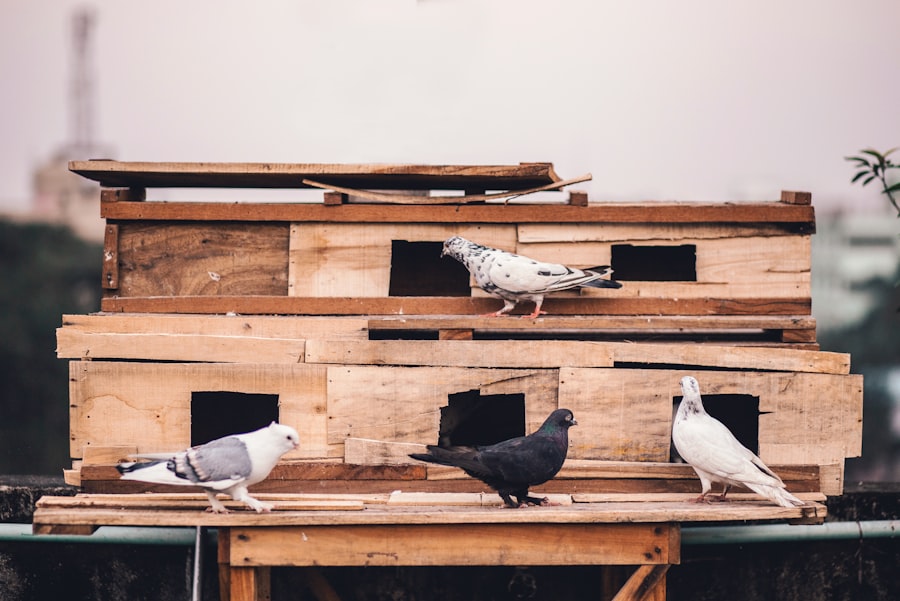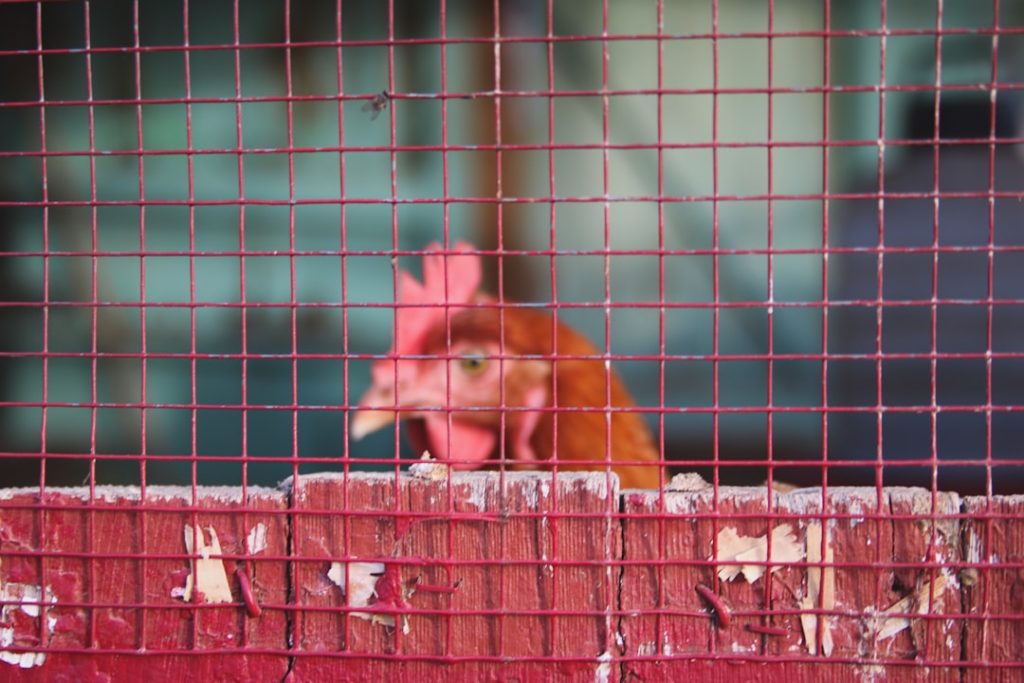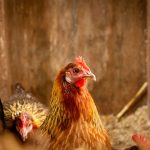Chickens have specific requirements for hot weather due to their physiological characteristics. Unlike humans, chickens lack sweat glands and rely on panting to regulate their body temperature, making them particularly vulnerable to heat stress and heat stroke. To ensure the health and well-being of chickens during hot weather, several key factors must be addressed.
Shade is essential for protecting chickens from direct sunlight and preventing overheating. Adequate shade can be provided through natural sources such as trees and shrubs, or artificial structures like covered areas in the chicken run. Access to fresh, clean water is crucial for hydration, as chickens tend to drink more in hot conditions.
Water sources should be regularly replenished and kept cool. Proper ventilation in the coop is vital for maintaining air circulation and preventing heat buildup. Without sufficient airflow, the coop environment can become stifling and uncomfortable for the chickens.
Monitoring chickens for signs of heat stress is important, and appropriate measures should be taken to ensure their comfort in hot weather. By understanding and addressing these specific needs, chicken owners can effectively manage their flock’s health and well-being during periods of high temperatures.
Table of Contents
Key Takeaways
- Chickens need access to shade and shelter to protect them from the heat
- Proper ventilation in the coop is essential to keep chickens cool
- Offering cool treats and hydration options can help chickens stay hydrated and cool
- Adjusting feeding and watering schedules can help prevent heat stress in chickens
- Monitor your chickens for signs of heat stress, such as panting and lethargy
Providing shade and shelter for your chickens
Natural Shade and Shelter
In hot weather, providing adequate shade and shelter for your chickens is crucial for their well-being. Without proper protection from the sun’s rays, chickens can quickly become overheated and suffer from heat stress. Planting trees or shrubs in or around the chicken run can provide natural shade for your chickens. Trees with broad leaves can offer a large area of shade, while shrubs can provide smaller pockets of shade throughout the day.
Man-Made Structures and Ventilation
If natural shade is not available, you can create covered areas in the chicken run using tarps or other materials. These covered areas should be positioned to provide shade throughout the day as the sun moves across the sky. In addition to shade, it’s important to provide shelter from extreme heat, such as a well-ventilated coop that offers protection from the sun and allows for air circulation.
Encouraging Cooling Behaviors
Another way to provide shade and shelter for your chickens is by creating a designated dust bathing area. Dust bathing is a natural behavior for chickens that helps them stay cool and maintain healthy feathers. By providing a designated area with loose soil or sand, you can encourage your chickens to engage in this behavior, which can help them stay cool and comfortable in hot weather. Additionally, providing access to a shallow pool or tub of water can also help chickens stay cool in hot weather. Chickens enjoy wading in water to cool off, so providing a shallow pool or tub in the chicken run can be a fun and effective way to help them beat the heat.
Ensuring proper ventilation in the coop

Proper ventilation is essential for keeping your chickens cool and comfortable in hot weather. Without adequate ventilation, the coop can quickly become stifling and uncomfortable for the chickens, leading to heat stress and other health issues. Proper ventilation allows for air circulation, which helps regulate the temperature inside the coop and prevents the buildup of heat.
There are several ways to ensure proper ventilation in the coop, including installing windows, vents, and fans, as well as positioning the coop in a location that allows for natural airflow. Windows are an effective way to provide ventilation in the coop, as they allow fresh air to enter while allowing stale air to escape. Windows should be positioned to take advantage of prevailing winds and should be equipped with screens to prevent pests from entering the coop.
Vents are another important component of proper ventilation in the coop. Vents can be installed in the roof or walls of the coop to allow hot air to escape and fresh air to enter. Vents should be positioned to take advantage of natural airflow patterns and should be equipped with covers or screens to prevent pests from entering the coop.
In addition to windows and vents, fans can also be used to improve ventilation in the coop. Fans can help circulate air and prevent the buildup of heat inside the coop, especially during periods of extreme heat. By ensuring proper ventilation in the coop, you can help your chickens stay cool and comfortable in hot weather.
In addition to man-made ventilation options, it’s important to position the coop in a location that allows for natural airflow. The coop should be positioned away from obstructions such as buildings or trees that could block airflow, and should be oriented to take advantage of prevailing winds. By positioning the coop in a location that allows for natural airflow, you can help ensure that your chickens have access to fresh, cool air even on the hottest days.
Proper ventilation is essential for keeping your chickens comfortable and healthy in hot weather.
Offering cool treats and hydration options
In hot weather, offering cool treats and hydration options is essential for keeping your chickens comfortable and healthy. Chickens need access to plenty of fresh water to stay hydrated in hot weather, as they will drink more water than usual to regulate their body temperature. Additionally, offering cool treats such as frozen fruits and vegetables can help chickens stay cool and provide them with essential nutrients.
There are several ways to offer cool treats and hydration options for your flock, including frozen treats, watermelon, and electrolyte supplements. One way to offer cool treats for your chickens is by freezing fruits and vegetables such as berries, grapes, or peas. These frozen treats can provide a refreshing snack for your flock on hot days and can help them stay cool while also providing essential nutrients.
Another popular cool treat for chickens is watermelon. Watermelon is high in water content and can help keep chickens hydrated in hot weather. Simply cut up a watermelon into small pieces and offer it to your flock as a refreshing snack.
In addition to cool treats, it’s important to ensure that your chickens have access to plenty of fresh water at all times. Consider adding ice cubes or frozen water bottles to their waterers to help keep the water cool throughout the day. In addition to cool treats and fresh water, electrolyte supplements can also help keep your chickens hydrated in hot weather.
Electrolyte supplements are designed to replace essential nutrients that are lost through panting and sweating, helping chickens stay hydrated and healthy in extreme heat. These supplements can be added to your chickens’ water or offered separately as a treat. By offering cool treats and hydration options, you can help your chickens stay comfortable and healthy in hot weather.
Adjusting feeding and watering schedules
In hot weather, it’s important to adjust your chickens’ feeding and watering schedules to ensure that they have access to food and water when they need it most. Chickens will drink more water than usual in hot weather to regulate their body temperature, so it’s important to regularly refill their waterers and ensure that they have access to clean, cool water at all times. Additionally, adjusting feeding schedules can help prevent heat stress by reducing activity during the hottest parts of the day.
One way to adjust feeding schedules in hot weather is by offering smaller meals more frequently throughout the day. This can help prevent overeating during cooler parts of the day when chickens are more active, reducing the risk of heat stress. Additionally, consider offering high-moisture foods such as fruits and vegetables during hot weather to help keep your flock hydrated.
In addition to adjusting feeding schedules, it’s important to regularly refill your chickens’ waterers with clean, cool water throughout the day. Consider adding ice cubes or frozen water bottles to their waterers to help keep the water cool during extreme heat. Another way to adjust feeding and watering schedules is by offering food and water during the coolest parts of the day.
Chickens are most active during the early morning and late afternoon when temperatures are lower, so offering food and water during these times can help prevent heat stress by reducing activity during the hottest parts of the day. By adjusting feeding and watering schedules, you can help ensure that your chickens have access to food and water when they need it most, reducing the risk of heat stress and keeping them comfortable in hot weather.
Monitoring your chickens for signs of heat stress

Recognizing the Signs of Heat Stress
One common sign of heat stress in chickens is panting. Chickens will pant in an effort to cool down when they are overheated, so if you notice that your flock is panting excessively, it’s important to take action quickly. Other signs of heat stress include lethargy, loss of appetite, decreased egg production, and seeking out shady areas or lying on their sides with wings spread out.
Preventing Heat Stress in Your Flock
To help prevent heat stress in your flock, it’s important to provide ample shade, fresh water, proper ventilation, and cool treats. Additionally, consider misting your chickens with a fine spray of water or providing shallow pools or tubs of water for them to wade in on extremely hot days.
Taking Action to Keep Your Flock Cool
By monitoring your flock for signs of heat stress and taking steps to keep them cool and comfortable in hot weather, you can help ensure their health and well-being. Remember to take action quickly if you notice any signs of heat stress in your flock, and provide them with the care and attention they need to thrive.
Tips for keeping your chickens cool when you’re away
If you’re unable to be home during hot weather, there are several tips you can follow to help keep your chickens cool while you’re away. One option is to set up automatic misters or sprinklers in the chicken run or near their favorite shady spots. These systems can provide a fine mist or gentle spray of water at regular intervals throughout the day, helping keep your flock cool while you’re not there.
Another option is to provide frozen treats such as fruits or vegetables before you leave for the day. By freezing treats such as berries or peas in advance and leaving them out for your flock before you leave, you can provide a refreshing snack that will help keep them cool while you’re away. Additionally, consider leaving out multiple waterers filled with fresh water before you leave for the day so that your flock has access to plenty of hydration while you’re gone.
If possible, consider asking a trusted friend or neighbor to check on your flock while you’re away during hot weather. This person can refill waterers if needed, check on your flock for signs of heat stress, and take any necessary steps to keep them comfortable while you’re not there. By following these tips for keeping your chickens cool when you’re away during hot weather, you can help ensure their health and well-being even when you’re not able to be there with them.
In conclusion, understanding the needs of chickens in hot weather is essential for keeping them comfortable and healthy during periods of extreme heat. Providing ample shade and shelter, ensuring proper ventilation in the coop, offering cool treats and hydration options, adjusting feeding and watering schedules, monitoring for signs of heat stress, and following tips for keeping your flock cool when you’re away are all important steps for helping your chickens beat the heat. By taking these measures, you can help ensure that your flock stays comfortable and healthy even during the hottest days of summer.
If you’re looking for more information on keeping chickens cool in the summer, you might also be interested in learning about how long it takes for chicken eggs to hatch naturally. Check out this article for helpful tips on hatching chicken eggs and caring for the chicks.
FAQs
What are some signs that my chickens are overheated?
Some signs that your chickens are overheated include panting, holding their wings away from their bodies, and reduced egg production. It’s important to take action to cool them down if you notice these signs.
How can I keep my chickens cool in the summer?
You can keep your chickens cool in the summer by providing plenty of shade, ensuring they have access to fresh, cool water at all times, and using fans or misters to lower the temperature in their coop or run.
What are some ways to provide shade for my chickens?
You can provide shade for your chickens by using tarps, umbrellas, or natural shade from trees or shrubs. It’s important to make sure that the shade is available throughout the day as the sun moves.
How often should I change my chickens’ water in the summer?
In the summer, it’s important to change your chickens’ water at least once a day, if not more often. This will ensure that they always have access to fresh, cool water.
Can I give my chickens frozen treats to help keep them cool?
Yes, you can give your chickens frozen treats such as frozen fruits or vegetables to help keep them cool. Just make sure to monitor their intake and not overdo it with treats.
Meet Walter, the feathered-friend fanatic of Florida! Nestled in the sunshine state, Walter struts through life with his feathered companions, clucking his way to happiness. With a coop that’s fancier than a five-star hotel, he’s the Don Juan of the chicken world. When he’s not teaching his hens to do the cha-cha, you’ll find him in a heated debate with his prized rooster, Sir Clucks-a-Lot. Walter’s poultry passion is no yolk; he’s the sunny-side-up guy you never knew you needed in your flock of friends!







